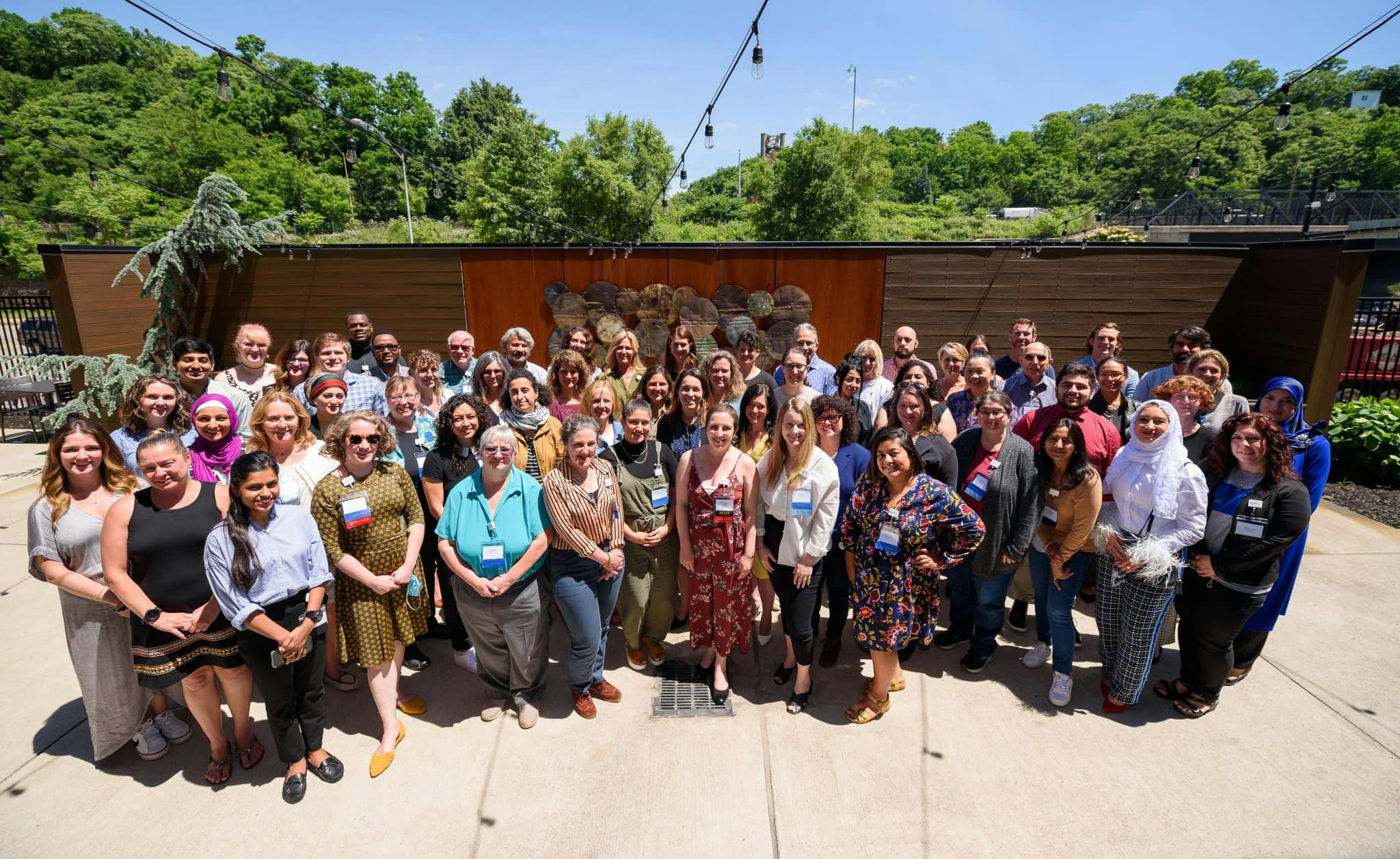This piece is part of an ongoing series to highlight Scholar Alumni of the 2019 Stand-To Veteran Leadership Program who represent the diversity of those included in the cohort, as well as the diversity of work that is represented throughout the program and within the veteran space.
On August 1, 2018, Jen Anthony completed a successful 20-year career in the United States Air Force and retired as Chief Master Sergeant. Once she left the military, Anthony quickly translated her military skills into a civilian career at Lorien Health Services and became the Managing Director of Information Technology. While professionally she had found her role, she was still in search of her identity as a civilian.
As a service member, you participate in mandatory transition classes and are told that transition is hard—many times not understanding how difficult until you actually hang up your uniform. For any veteran, “transition” equates to coming to terms with who you are and the identity that others perceive of you as a civilian. It’s much more than finding meaningful employment— it is a mental, emotional, physical, and spiritual transition.
Anthony’s journey to finding her civilian identity was hard. From her colleagues she endured side glances, the obvious avoidance of military topics, strange looks when she told people she was a veteran, and the loneliness accompanied with becoming invisible in plain sight. Leaving the Air Force meant leaving behind what gave her a sense of professional purpose. It was replaced by a culture and individuals who did not understand her former title of Chief Master Sergeant or the respect that came with it, leaving a giant hole in her life. From a non-military person’s point-of-view, Anthony’s transition looked perfect as she had not opened-up to say that “perfect” was far from what it felt like.
Inspired by a LinkedIn post of a Bush Institute Stand-To Veteran Leadership scholar, Anthony decided to take a chance and apply to the program, which hones leadership skills, enhances networks, and advances individual projects. She did not believe she would be chosen, and worried that if so, she would not belong. Anthony was wrong.
Not only was she selected for the program, but she thrived. And at the end, she became the class representative to speak in front of President and Mrs. Bush at the graduation ceremony. Her personal leadership project also changed course along the way. Anthony’s initial idea of impacting positive transition outcomes for veterans became more specific and much more personal over the course of the five-month program.
Through her time with fellow service members and peers in the veteran leadership program, Anthony realized she was not alone. The struggles, challenges, and feeling of imposter syndrome during her transition were real and very present with many of her peers. She slowly opened up and spoke about her experience to her fellow scholars, inviting other female veterans to do the same. A personal and professional support network, that many of the scholars may not have recognized they needed, began to emerge.
The more that was shared, the more Anthony changed personally, and she recognized that more needed to be done to support other female veterans throughout their transition. She found her voice and a strength she hadn’t felt since leaving the military.
The last two months of the Stand-To Veteran Leadership Program, Anthony partnered with Syracuse University to develop and conduct a survey on how to better understand, evaluate, and measure the transition process for female veterans. In just two months, the survey received more than 700 responses.
The data collected and analyzed overwhelmingly demonstrates more work is needed to better serve female service members. The data will be shared with other organizations studying women veterans and will be used as a catalyst for policy change.
Anthony’s experience with the Stand-To Veteran Leadership Program solidified her commitment to identifying and working to remedy the challenges female service members face as they transition from the military. Women service members’ post-service narrative should state that they are not only an asset but a strength to the workforce of this country.
Anthony’s confidence to apply for the Veteran Leadership program, her willingness to show up and be present, and her courage to open up and share her heart with a cohort of her peers is not only bringing her personal healing. It’s an inspiration and a voice for a better future for all women veterans.






























